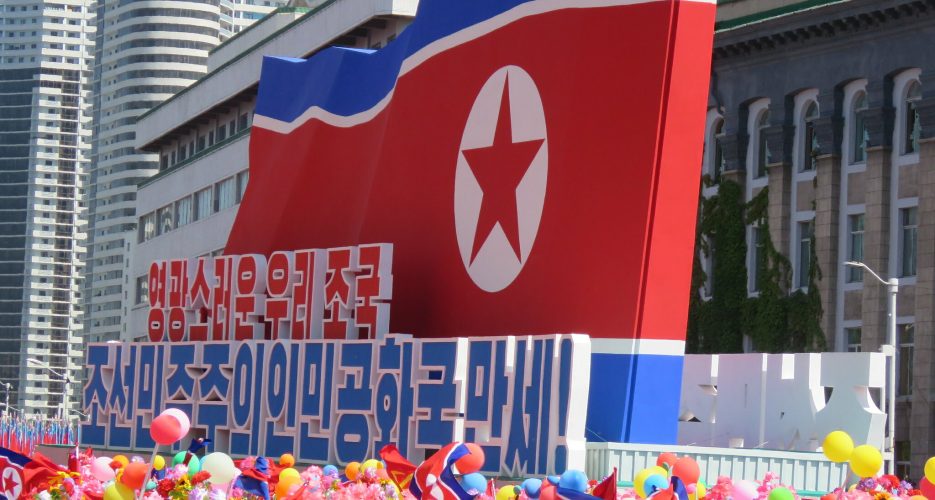A South Korean man who narrated and acted in last years’ mockmumentary, Propaganda, has been shunned by the Korean community in his home town of Christchurch, New Zealand, over accusations that he is a North Korean sympathiser. According to a New Zealand media report, Eugene Chang and his wife Jean have been refused communion at their Korean Catholic church, and had to leave the board of trustees of their local Korean school after parents refused to send their children there while Chang remained involved in the film.
The mockumentary made waves in 2012 by appearing to have come from North Korea, and argued that the world is controlled by corporates who use consumerism, religion and pop culture to prevent people rising up against their corrupt rulers. North Korea was presented as the “glorious exception” and Mr Chang posed as a North Korean philosophy professor in the film. Excited debate ensued as to the film’s authenticity and origins.
A South Korean man who narrated and acted in last years’ mockmumentary, Propaganda, has been shunned by the Korean community in his home town of Christchurch, New Zealand, over accusations that he is a North Korean sympathiser. According to a New Zealand media report, Eugene Chang and his wife Jean have been refused communion at their Korean Catholic church, and had to leave the board of trustees of their local Korean school after parents refused to send their children there while Chang remained involved in the film.
The mockumentary made waves in 2012 by appearing to have come from North Korea, and argued that the world is controlled by corporates who use consumerism, religion and pop culture to prevent people rising up against their corrupt rulers. North Korea was presented as the “glorious exception” and Mr Chang posed as a North Korean philosophy professor in the film. Excited debate ensued as to the film’s authenticity and origins.
Become a member for less
than $5.75 per week.
Unlimited access to all of NK News: reporting, investigations, analysis
The NK News Daily Update, an email newsletter to keep you in the loop
Searchable archive of all content, photo galleries, special columns
Contact NK News reporters with tips or requests for reporting
Get unlimited access to all NK News content, including original reporting, investigations, and analyses by our team of DPRK experts.
Subscribe now
All major cards accepted. No commitments – you can cancel any time.












